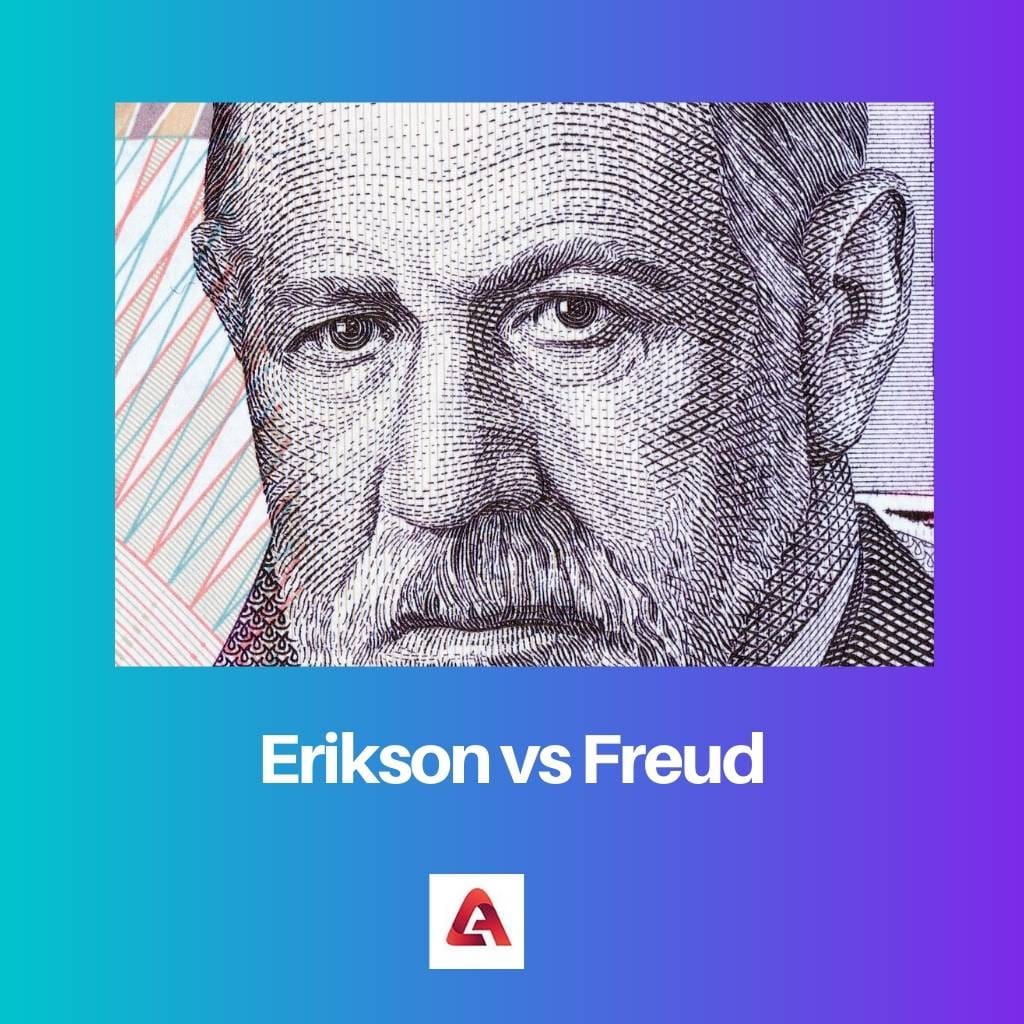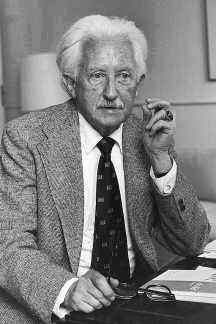Development is something that keeps happening in a human being till he dies. Therefore it becomes essential to how the development process takes place, how it affects humans, and what changes and needs are required.
Therefore to better understand this development process, several psychologists have given various theories, among which the most famous are those provided by Erikson and Freud.
Key Takeaways
- Erikson’s theory emphasizes the importance of social and cultural factors in human development, while Freud’s theory focuses more on unconscious drives and instincts.
- Erikson’s theory suggests that development occurs throughout the lifespan, while Freud’s theory proposes that development is mostly completed in childhood.
- Erikson’s theory includes eight stages of psychosocial development, while Freud’s theory includes five stages of psychosexual development.
Erikson vs Freud
Freud only expanded his theory till a certain age as he believed a human developed fully in his initial era. Still, on the other hand, Erikson expanded his idea till old age as he thought a human tended to develop during the ancient period too.

Erikson introduced the psychosocial theory based on Identity and Cultural demands. He covers all the stages of human life, including Adulthood too. He divided the stages of human development into eight different locations.
The main focus of his theory was the Social and Environmental Factors.
Freud introduced the Psychosexual Theory, he mainly belief the most critical stage of human development is the early stage, and the personality of a human is developed in the initial years only.
He gave more importance to the basic needs and biological factors and explained the importance of maturation.
Comparison Table
| Parameters of Comparison | Erikson | Freud |
|---|---|---|
| Theories | Psychosocial theory | Psychosexual theory |
| Main focus | Social and environmental factors | Basic Needs and Biological Factors. |
| Includes | Includes Adulthood | It ends in early adolescence |
| Beliefs | He believes that development does not stop; it continues till old age. | He believes that development takes place in the initial years only. |
| Theory Based on | Identity and cultural demands. | Sex (importance of maturation) |
What is Erikson?
Erikson was the famous psychologist who introduced the Psychosocial Theory. The different stages of Psychosocial Theory are:
- Trust vs Mistrust (Birth to 1 year): this Stage explains the importance of trust between the child and their caretaker and how a child can have mistrust if proper care and love are not given to him during this age.
- Autonomy vs shame and doubt (Age 1-3 years): during this age, a child becomes self-sufficient by learning to eat alone.
- Initiative vs Guilt (Age 3-6 years): during this stage, the child starts developing interpersonal skills by interacting with other children.
- Industry vs Inferiority (Age 7-11 Years): in this stage child learns new skills such as reading and writing.
- Identity vs Role Confusion: this is the Stage where adolescence starts, and the child develops a new attitude and skills, explores different roles, etc.
- Intimacy vs Isolation: during this Stage, young people start having relationships with their partners, seeking love and companionship.
- Generativity vs Stagnation: during this age, human looks after society and builds a family.
- Integrity vs Despair: this is the older Stage of a human where it remembers the ancient time.

What is Freud?
The psychosexual theory was introduced by Freud, which has the following stages of human development:
- Oral Stage (Brith-1 Year): As described in theory, this Stage is related to having pleasure through eating and tasting. Difficulty in this Stage can result in oral fixation.
- Anal Stage (1-3 years): during this Stage, controlling bladder and bowel movement is achieved.
- Phallic Stage (3-6 years): during this age, children learn how they are different based on sex, boys face the Oedipus complex, and Girls face the Electra complex.
- Latent Period (7-11 years): During this stage, the child becomes more familiar with their friends and school activities and tends to focus more on them.
- Genital Stage: during this Stage, as explained by Freud, the Adolescences period starts, and they begin to develop more romantic relations and companionships.
Therefore Freud ended the stages of his theory during the Adolescence period as he describes how impactful these initial years are and how a child fully develops during these years. Therefore, this only becomes the major drawback of his theory that he omitted Adulthood and after stages of human life as discussed by Erikson.

Main Differences Between Erikson and Freud
- Erikson introduced the Psychosocial Theory, and Freud introduced the Psychosexual Theory.
- The main focus of Erikson’s theory was the social and environmental factors, and the main focus of Freud’s theory was the basic needs and biological factors.
- The main difference was that Erikson explained life, including Adulthood, but Freud only covered a part of life which ended up early.
- Erikson believes that development does not stop at an early age; everyone also keeps developing during the old period. Still, Freud did not think the same and explained how development occurs only during the Initial Stage of life.
- Erikson’s theory was based on the Identity and cultural demands of any individual, but Freud believes his theory was mainly based on the importance of maturation.
- Further, the names of the different stages were also different in both the theories, such as the First Stage of Freud’s theory was known as the Oral Stage, whereas the first Stage of Erikson’s Theory was known as Trust vs Mistrust.

As this article underscores, the differing beliefs of Erikson and Freud shed light on the diverse pathways of human development. It’s enlightening to explore these perspectives.
Certainly, the contrasting theories open up a rich discourse on the multifaceted nature of human growth and evolution.
The comparison of Erikson and Freud serves as a thought-provoking analysis of the diverse viewpoints on human development. A valuable contribution to the field of psychology.
Indeed, the article offers an engaging evaluation of these prominent theories, enhancing our knowledge of human developmental psychology.
The comparison between Erikson and Freud’s theories is intellectually stimulating, offering a profound exploration of the multifaceted nature of human development.
Absolutely, the article offers a compelling analysis of these theories, enriching our understanding of human developmental psychology.
Indeed, the in-depth examination of Erikson and Freud’s theories fosters a captivating intellectual inquiry into the depths of human development.
The comparison table provides a concise overview of the theories, making it easier to discern the key distinctions. A well-structured article indeed.
The distinct stages presented by both Erikson and Freud shed light on the multifaceted nature of human development, evoking a deep appreciation for the intricacies involved.
Indeed, an enthralling exploration of these theories stimulates a rich intellectual discourse on the complexities of human development.
Absolutely, these theories reveal the intricate layers of human development, stimulating a profound contemplation of our growth and evolution.
Considering both Erikson and Freud’s theories together provides a comprehensive view of human development, taking into account a myriad of factors. A holistic examination, indeed.
Absolutely, a holistic approach to examining the theories allows for a more complete understanding of the intricacies involved in human development.
Theories like these always emphasize how complex human development truly is. Both Erikson and Freud provide valuable insights into different aspects of this process.
Certainly, the complexity of human development is astounding. It’s crucial to consider various perspectives to truly understand the intricacies involved.
The detailed elucidation of Erikson’s and Freud’s theories offers a profound insight into the depth of human developmental psychology – truly fascinating!
Undoubtedly, the article delves into the nuances of human development with commendable clarity and depth.
I appreciate the breakdown and comparison between Erikson and Freud’s theories. It really highlights the fundamental differences in their approaches.
Absolutely, understanding these foundational perspectives is pivotal in comprehending the broader spectrum of human development.
The emphasis on social and environmental factors in Erikson’s theory brings a refreshing angle to the discussion of human development. It’s a reminder that our surroundings significantly impact our growth.
Absolutely, Erikson’s perspective widens the scope of developmental analysis and broadens the factors taken into account.
Indeed, Erikson’s focus on the influence of culture and society is thought-provoking and adds depth to our understanding of human development.